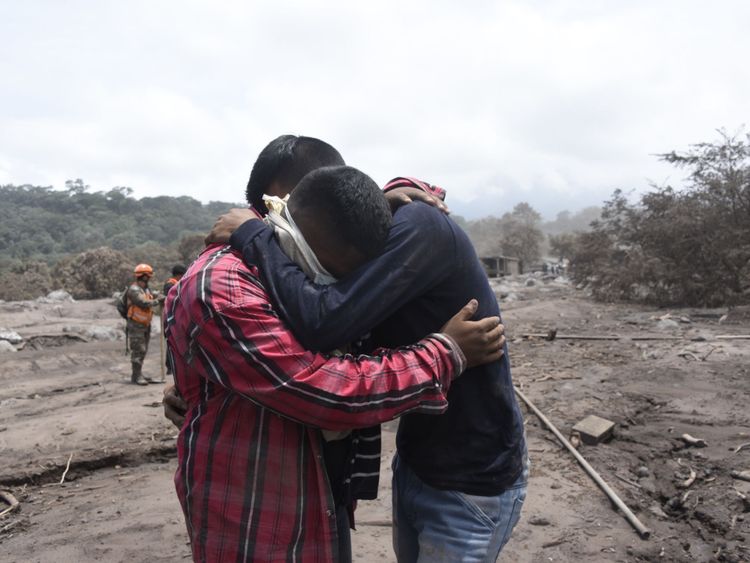Officials in Guatemala have admitted that they were slow to warn the public of the danger posed by the eruption of the country’s Volcano of Fire.
At least 109 people were killed when Volcan de Fuego erupted last Sunday, sending gas and rocks hurtling down the mountain at high speed, enveloping several villages.
Seismologists warned there was a possibility of pyroclastic flows eight hours before the main eruption – one of the deadliest in 500 years – but the national disaster agency Conred failed to impose mandatory evacuation orders.
Making matters worse, when Fuego did violently erupt, rain and clouds obscured the toxic debris as it descended down the slopes towards villages.
Guatemala’s public prosecutor says it will open an investigation into whether protocols were followed in the handling of the disaster.
Sky News was given access to the search for bodies in one of the worst hit communities, San Miguel Los Lotes, where many people are still missing.
Homes have been filed with volcanic ash, and rocks were still warm to the touch, five days after they were catapulted from the crater.
Massive boulders are being moved by excavators as the search for victims continues. Across the country, close to 200 people are still reported missing and more than 12,000 have been evacuated.
Rescue efforts have been suspended due to inclement weather, with officials still warning of falling ash.
Insivumeh, the country’s seismological, volcanic and meteorological institute has advised the civil aviation authority to continue to take precautions with flights.
Meanwhile, the International Federation of Red Cross and Red Crescent Societies (IFRC) has raised concerns about the economic cost of the disaster.
Ash has fallen across a number of areas where agriculture is a vital industry.
IFRC president Francesco Rocca said: “We should not underestimate the scale of this disaster. Critical, emergency needs are still enormous, and affected communities will need sustained and long-term support.
“We hope it will not mean a secondary disaster.”
The federation has pledged more than $253,000 (£188,679) to support rescue efforts and said those worst hit would need at least a year to recover.
The White House has said emergency aid will arrive from the US soon, including food, water and sanitation, with burn victims to be flown to Florida for treatment.
From – SkyNews


